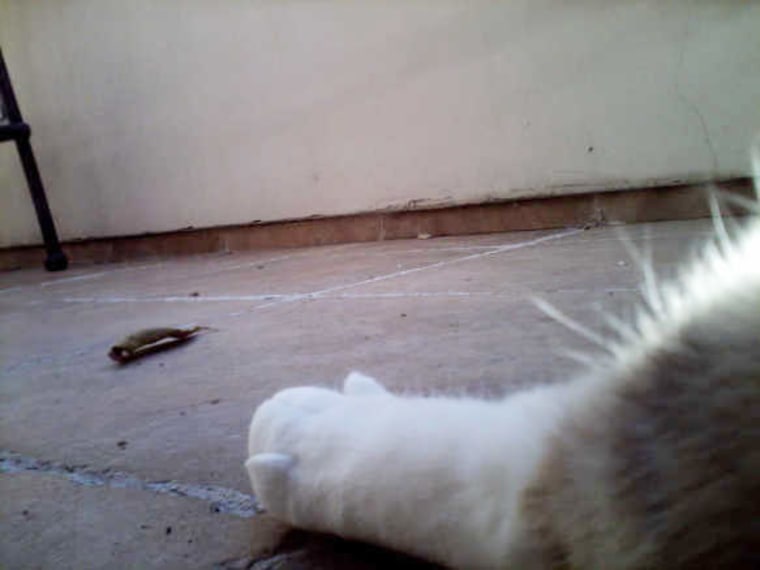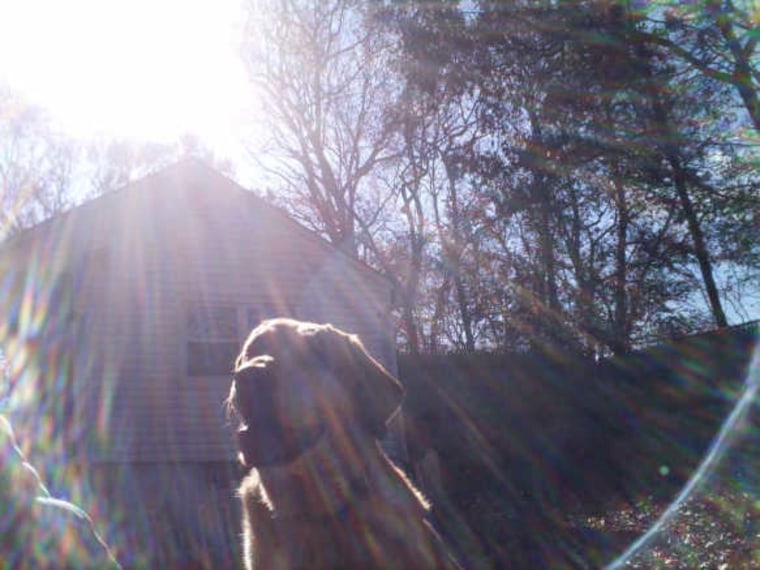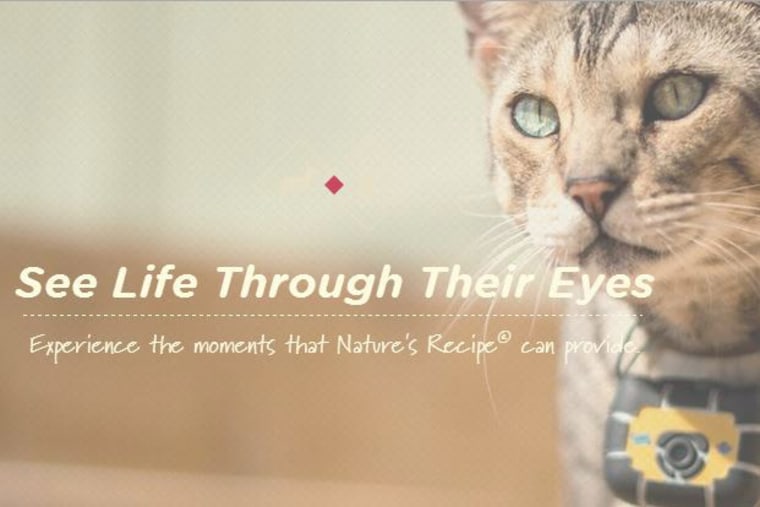
Nobody wants an Instagram feed clogged with photos of people's pets, let alone snapshots taken by actual cats and dogs. But it turns out clipping a camera to your furry friend's collar might not be a terrible idea after all.
These gadgets aren't new — they first became famous after an entrepreneur attached one to his cat Mr. Lee in 2008. Recently, however, small pet cameras, which take photos automatically at regular intervals, have become more than just a novelty.
Pet food company Nature's Recipe last month handed lightweight collar cameras to 50 "influential pet owners, bloggers and advocates" to capture moments as their animals — dogs and cats —went about their daily business, which people could then post to the campaign's website or to their social media accounts. (Every week until March, others will get a chance win one by sharing pictures of their beloved pets on the company's Facebook page).
The result? Pictures of other curious animals, looming humans and leafy backyards. Not exactly fine art. But dismissing animal cameras as vehicles for pet owner narcissism — like, say, the self-tweeting dog collar and Catster, the social media site for cats — might be selling them short.
In 2012, researchers from the University of Georgia and National Geographic released footage and results from their Kitty Cams project, which aimed to find out what, exactly, cats were doing when their owners weren't around.
They reviewed footage taken by 60 unwitting cat photographers fitted with specially designed, 90-gram (3.2-ounce) cameras, each equipped with an LED light and radio-tracking device.
"You just strap the thing on and off they go," Kerrie Anne Loyd, lead researcher on the project and now an ecologist at Arizona State University, told NBC News. "They don't seem to mind it. It's a great tool for researchers."
What Loyd and her team found was cats eating lizards, walking across roads and visiting second families for some extra food and attention.
Overall, 37 percent of the cats studied killed something outdoors, mostly birds, reptiles, rodents and frogs, while around 20 percent had a penchant for wandering into storm drains and drinking potentially hazardous run-off.

While the cameras used in the Kitty Cams project aren't on sale, Loyd was supportive of people using commercially available options like the Eyenimal from Dogtek and the CatCam from Mr. Lee — yes, the company is named for the cat who originally wore the prototype. They sell online for $99 and $50, respectively.
As long as a camera is less than 3 percent of your pet's body weight — the standard used for years by researchers studying animals like sea turtles and lions in the wild — the critters usually don't mind wearing it, said Loyd. And the resulting photos could help owners decide whether their pet should be spending more or less time wandering around unsupervised.
"Seeing footage of your cat crossing the road five or six times a day can be pretty eye-opening for pet owners," said Loyd. "If people can protect their pets and protect wildlife while learning about what their pets are doing outside, that would be good for everybody."
Keith Wagstaff writes about technology for NBC News. He previously covered technology for TIME's Techland and wrote about politics as a staff writer at TheWeek.com. You can follow him on Twitter at @kwagstaff and reach him by email at: Keith.Wagstaff@nbcuni.com
